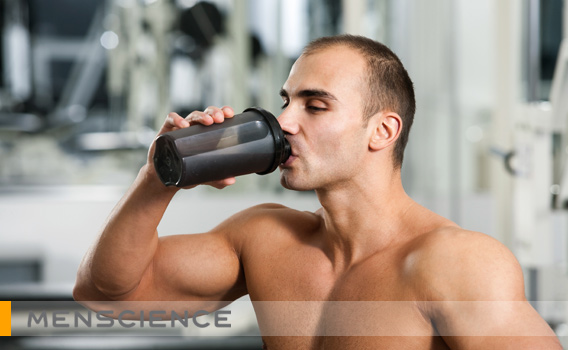In the diet and fitness world, what you eat is always a hot topic. Eat more fiber, cut down carbs, trim the fats – the list goes on. But what a lot of us ignore is when we eat, which is just as important. This is especially true if you work out regularly and are trying to build muscle or burn fat. What you consume before, during and after your workout can either make or break your results. To help you get more out of your workout, we’ve put together this nutrition timing guide to help you eat for better results.
Pre-Workout
Whether you work out in the morning or the evening, one thing is certain: Your body needs the right fuel to get through a grueling workout. For pre-workout nutrition, carbs are king. Why? During exercise, your body breaks down glycogen into glucose, which is used as an energy source In other words, glycogen is the stored form of carbohydrate energy. People who follow a low-carb diet may notice that they have less energy – this is due to the decrease in glycogen.
Without sufficient glycogen prior to exercising, your workout gets a whole lot harder. You probably won’t run as far or lift as much as you possibly can. To ensure that you have enough glycogen, you need to eat carbs before any workout.
Besides carbs, nitric oxide is probably the most important nutrient you need prior to exercise. Nitric oxide works by dilating your blood vessels, allowing for better muscle pumps and better transportation of nutrients to your muscles. This in turn increases strength and improves recovery.
Follow these expert recommendations before a workout:
1. Eat complex carbs 1-2 hours before a workout: You need to allow your body some time to digest food. If you eat too close to game time, you’ll increase the likelihood of experiencing some uncomfortable digestive issues. Most experts recommend waiting 1 to 2 hours after eating to exercise to give your body time to digest food and store it as energy.
2. Don’t eat a heavy meal. There’s no need to eat an entire meal before a workout – a simple snack will suffice. Greek yogurt with berries, a small bowl of cereal with skim milk, and a banana with peanut butter are all good snacks that have a good ratio of simple carbs to protein. You want to aim for a carbs/protein ratio of 2:1 or 3:1. Simple carbs provide a quick source of energy for your body.
4. Consider a pre-workout supplement. A pre-workout supplement provides an ideal mix of carbs, protein, thermogenics and nitric oxide to boost your performance and help you push yourself harder. They’re easy to store, easy to mix and ideal for those with a tight schedule.
During Your Workout
Don’t worry: We’re not going to tell you to take a break mid-workout to eat something. Because of your pre-workout regimen, you should have enough glycogen to make it through your workout. Hydration, on the other hand, is of the utmost importance when exercising since you’ll be sweating a lot. Follow these tips to avoid dehydration.
1. Drink 8 oz. of water every 15-20 minutes. While many factors ultimately influence how much water you should be drinking (e.g. temperature, type of sport, etc.), you should be drinking at least a little water every 15-20 minutes. Rule of thumb: If you feel thirsty, don’t wait – drink up.
2. If you’re exercising for more than an hour, have some more simple carbs and electrolytes. Water is fine for short workouts, but longer workouts can significantly deplete your glycogen and electrolyte levels. You can consumer another dose of a pre-workout supplement for each hour of intense exercise.
Post-Workout
The period after your workout is arguably the most important part of your day in terms of nutrition. After a weight-training or cardio session, your energy levels are depleted and your muscles are broken down. They’re like sponges, just waiting to absorb any nutrients you give them. One of the quickest ways to get the right nutrients is through a post-workout recovery formula. Here’s what yours should have:
1. Protein: Proteins are the building blocks of muscles. Since your muscles are broken down after a workout, protein is essential for their repair. While there are many sources of protein available – whey, casein, soy, egg – you want something that digests well and reaches your muscles ASAP. For maximum bioavailability, whey trumps them all.
2. Carbs: For pre-workout nutrition, complex carbs and a few simple carbs are best. But after a workout, your body is starving and needs mainly simple carbs. Simple carbs are absorbed more quickly by the body because they create an insulin spike – insulin helps move nutrients through your body faster. The ideal post-workout supplement should have a good mix of simple carbs and complex carbs to restore your glycogen levels and kick-start your body’s anabolic process.
3. Amino Acids: Amino acids are substances that help aid muscle growth and repair in conjunction with protein. There are two types of amino acids: non-essential and essential. The former are produced by the body while the latter come from our diet. Amino acids have also been shown to reduce soreness between workouts by improving recovery time. Most protein powders contain an assortment of amino acids.
Ideally you want to take your post-workout supplement within 20 minutes of exercise to prevent your body from going into a catabolic state, which risks muscle growth and hinders recovery time. In addition to your post-workout recovery formula, you should also consume a whey protein powder 1-2 times a day to give your body regular doses of protein to further prevent catabolism.









